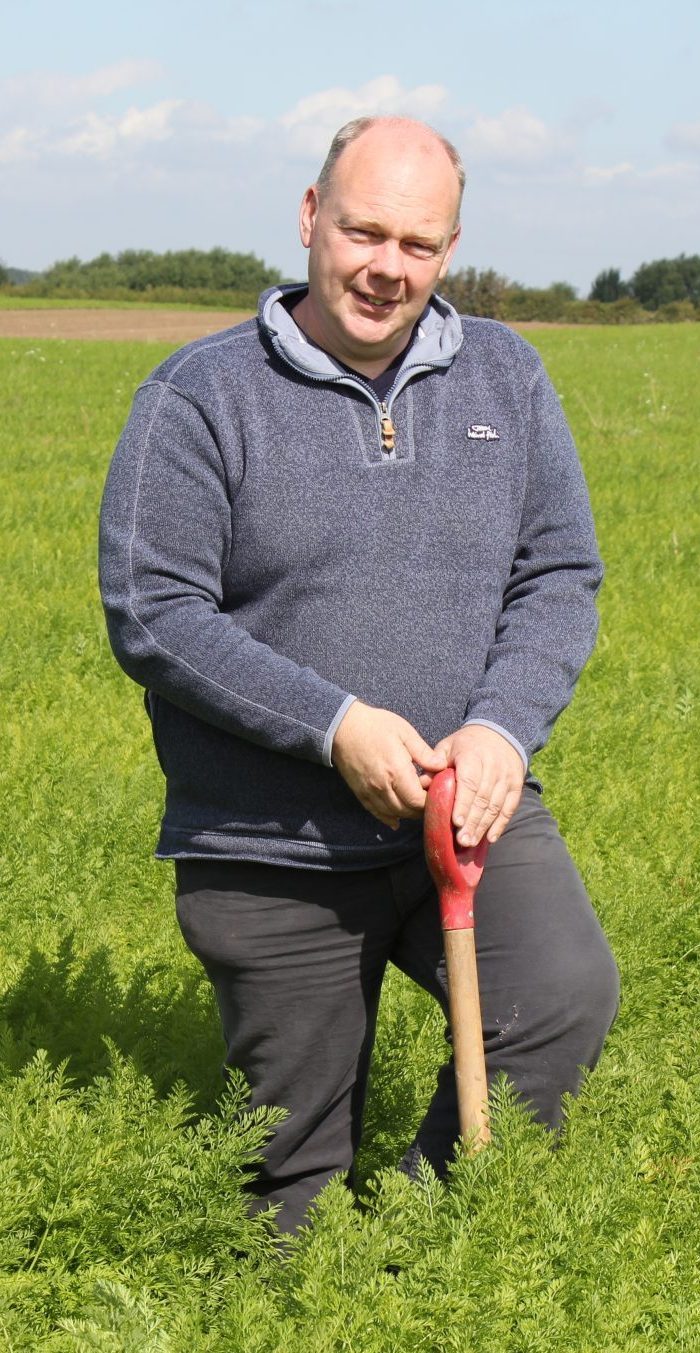Martin Evans was elected to the CHAP board as member director at the last AGM. Here he chats to CHAP about his varied and extremely well-travelled career and considers past and future developments in agriculture, and offers some great advice.
You recently became the new member director of CHAP. What prompted this decision and what do you hope to bring to the CHAP board?
I was approached and asked to consider undertaking the member director post with CHAP. I hope I can bring practical and pragmatic views, interlinked with business insight and my willingness to keep learning. I also hope to be taking on board new “things” from the CHAP board, as well as giving as much as possible.
Have you noticed a change in attitude in the sector since the inception of CHAP and the other UK Agri-Tech Innovation Centres? What impact do you think they are having?
CHAP and the other Agri-Tech Centres have been part of my environment for a long while, through my connections with STC and AHDB.
The sector has a very good awareness of the initiative, but I feel the impact has been very specific so far and not reached everyone in the sector. This is an inherent issue within the sector as it is extremely specialised, and often credits are dissolved as findings are rolled out. That is something to be careful of, as originators of innovation are often not credited as they should be.
You must have seen many changes in the horticultural sector during your career. Which developments stand out from the rest, and why?
Yes, lots of changes, some which have had positive effects and others I am not so sure on. Generally, the quality and standard of produce has vastly improved, in some areas this has been over the top and we are now reeling back on some of this.
The industry is now very consolidated, and we now have a system of specialist producers growing a limited range of produce, which is then transported to market. What used to be in place, was growers producing a range of produce for the local urbanised areas.
The use of labour has changed dramatically, this used to be made up of local labour, now we are very reliant on migrant labour.
The range of crops that we produce has changed and most businesses have to be supported with overseas production to fulfil their customers’ needs.
The UK growing season has actually gotten longer, but with price pressures we are importing more produce than we ever were.
One thing that is for sure, is that it will change and evolve again, and the sector will have to adapt, as it always has.
You have been involved with STC for many years. What has been the impact of the partnership with CHAP so far, and how do you see the relationship developing?
CHAP has brought good state-of-the-art investments to STC, which it needs to keep at the forefront of UK applied horticultural research. Going forward, these investments need milking to deliver the science the facilities can deliver.
The big issue is that the funding for such applied science is limited, even though the needs are very apparent for the industry. So, to make it work, both parties need good questions and funding that goes with the questions. This, in the current climate, has been challenging, but it is good to see CHAP have very good people trying to stimulate interest.
You also work with another CHAP partner, AHDB, which is undergoing a period of change. What are your hopes for the future of AHDB in UK agriculture? How do you think it will look/work in the future?
This is a very complex question, which has many potential outcomes. The need for collaborative innovation has never been greater, and on the whole I do feel those of us within the sector can see that. See below:

I think we will end up with a small statutory levy for basic crop protection work, and then we will perhaps end up with a business model that will allow farmers and growers to invest together in projects that will create the answers we need.
The trouble is I feel things are only going to get worse before they get better as not everyone -including government – sees the need to address this issue now from a positive position, rather than a dire need.
I suspect we will have to have a period of inflation within the sector to drive this change. Our current scenario is that we have lots of people in the world to feed with changing dietary needs, in a food production system that, at conservative estimates, uses five times more calories of fossil foods than it produces, and the world is promising to reduce the use of fossil fuels.
So, to answer your question the need for a statutory levy has never been greater, but the statutory instrument that binds it together has never been modernised, so the inevitable has happened unfortunately.
Talking to people from across the sectors involved, the reason for the no vote is quite simple, too much money spent on overheads (>60%) and not enough on actual research (<40%).
Your profile says you have managed farming operations around the world. Can you tell us a bit more about your international experiences? Is there one country that stands out and why?
When I graduated, many of my friends were keen on travelling and I was not, I was desperate to get into the world of work and attacked it with some vigour.
By the age of 26 I was farms director for a fast-growing business, growing crops that no one else wanted to harvest. I had 22 different farming sites in the UK and had countries such as Mexico, Egypt, Hungary, Zimbabwe and the US under my wing.
The supermarket shelves also looked very different in those days, in the summer it was a summer cabbage, the autumn was an autumn cabbage, the winter was a winter cabbage and spring cabbage was in the spring.
The products that you now see on the shelves today – such as bobby beans all types, fresh peas, mange tout, sugar snaps, flat beans, baby corn etc – all started off at some point in my travel bag as I went from continent to continent. My work ranged from engaging with growers from the Nile delta to laser levelling fields in the imperial valley in California. I often did three continents in a week. Most weeks only had six nights and the most flights I had in a week was 27.
I loved Zimbabwe as a country and have many regrets that I never spent much time there, I often used to go to Zim for the day (night flights) and always felt I would be able to spend more time there next time, as the infrastructure, social impact and economic importance was so rewarding. We built schools, clinics, housing and fed people, alas the rest is history. My biggest regret is that I declined an offer to have my honeymoon in Zim out of sheer pride and stupidity.
Having remained in contact with many of my friends the irony is I ended up out-travelling all of them by a country mile.
If you had to leave the UK, where would you like to end up living and working?
Over the past 20 years I have been self-renovating a 400-year old Welsh long house, set in 15 acres and surrounded by deciduous woodland and a river, a mile from a town called Aberaeron, which has Britain’s 3rd prettiest street. This is how I have spent my holidays with the family and friends learning new skills. What I would like to do is spend the summer months in Wales and then rent properties around the world for four months a year, during our winter to really experience different cultures first hand.
This does not answer the question fully but, having already farmed in many different parts of the world, I do feel my desire to keep learning would keep me moving. The work would have to evolve around where I am. I drive my children mad with this one, I would love to work in McDonald’s for a week to understand how they can take people with limited skills and provide the same service and product wherever you are in the world.
Looking back on your career (so far) of 35+ years, what would you say was your biggest achievement to date?
Not sure on this one at all, as I have achieved very little without others, so I am left with a fairly mundane list of achievements. Lots of under-achieving that is for sure. When I look back, I often wonder how and where I simply got the energy to do the things I seem to have been involved in.
If you could go back in time, what advice would you give to your teenage self?
Read, understand and do the things Baz Luhrman told us all about in the lyrics to his song “Everybody’s free to wear sunscreen”.
Martin Evans has held positions on the AHDB Horticulture Board, Vegetable Panel and the Food Innovation Network. He is currently on the board at Stockbridge Technology Centre and is CEO of Fresh Growers Ltd.
Please note, the opinions expressed in this article are the author’s own and do not necessarily reflect the views or opinions of CHAP.
If you have any questions about becoming a member of CHAP, or would like to reach out to the CHAP team to discuss other project opportunities, please send us an email using the enquiries form at the bottom of our homepage.













